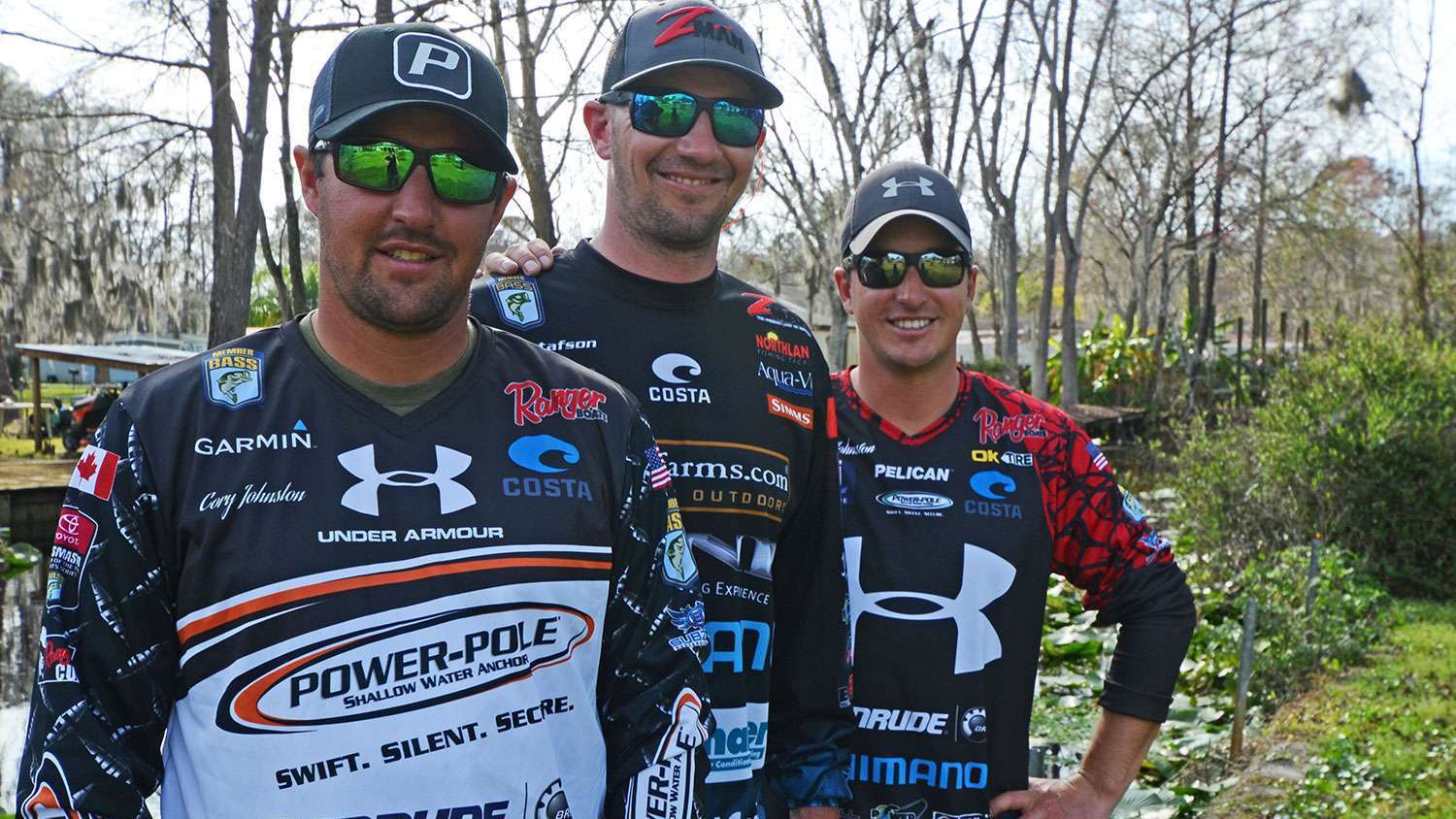
How do you declare a Bassmaster Classic trophy at a Border Patrol Checkpoint?
It’s a question that until now hasn’t been relevant, but in mid-March it could become a matter of national or international importance.
Three Canadian anglers – brothers Cory and Chris Johnston and running mate Jeff Gustafson – will compete in the 50th iteration of bass fishing’s biggest event. They were all Elite rookies in 2019, but their performances were about as un-rookie-like as you can imagine. They finished third, 13th and 28th, respectively, in the Bassmaster Angler of the Year race. Gustafson and Chris Johnston both earned runner-up finishes, and while Cory couldn’t match that, his two third places and three other top 10s more than made up for it.
No one who has been following the sport for any period of time should have been surprised at those results. In addition to their dominance north of the border, the three pros also excelled in FLW Tour competition. Gustafson and Cory qualified for two Forrest Wood Cups apiece, while Chris made three. Cory won two FLW Series tournaments, and Chris won a 2018 FLW Tour event in Florida.
Can one of them win the Classic?
Bassmaster emcee Dave Mercer, another refugee from the Great White North, believes they have as good a shot as anyone in the field: “Northern guys today are not the same as northern guys of 20 years ago,” he said. “Last year, both the St. Johns and Lanier were almost won by Canadians. Guntersville is similar to a lot of northern lakes.”
If anything, Mercer is shocked that they haven’t won already.
“In Canada, the Johnstons don’t lose … ever,” he said. “In the five weeks they were off this summer, they won a tournament every week. Other Canadians are shocked that they don’t win everything.”
Of course, they are still only three competitors among an exceptionally talented field of more than 50. Mercer believes that the biggest obstacle to a Canadian victor is that there’s only one place that really counts in what amounts to a winner-take-all tournament. It’s a numbers game. If they don’t win in Alabama, though, he fully expects one or more of them to hoist a big blue trophy at some time later this year.
“I’m going to go out on a limb and make a bold prediction,” he said. “Canadians will win two titles this year.”
The only non-American Classic winner to date was Japan’s Takahiro Omori in 2004. South Africa’s Gerry Jooste fished five Classics, finishing as high as 15th. In 2019, Jacopo Gallelli of Italy became the first European to qualify for the event. He made it through the B.A.S.S. Nation and finished 38th on the Tennessee River. There have been others, but none really made a meaningful run at the title.
Hank Gibson of Keswick, Ontario, became the first Canadian to fish the Bassmaster Classic when he competed on the James River in 1990. Charles Sim of Ottawa was the second. He qualified to fish at Grand Lake in 2016 and finished 31st.
This year there will be more Canadians in the field than in all of the other Classics combined. Part of that is due to a dearth of countrymen in the field. Jon Bondy of Windsor, Ontario, fished the Elite Series from its inception in 2006 through 2019, along with a healthy serving of Northern Opens, but never made the Classic.
All of that has bred pent up excitement in the close-knit Canadian bass community.
“They’re definitely feverish,” Mercer said. “When you’re Canadian and you’re leading an Elite event, your phone blows up, and it’s a whole country texting you. Literally, the whole country is behind you.”
They speak the same language as their southern counterparts, more or less, so the Canadian Elites don’t share the language barrier that competitors from, say, Japan, might experience. Nevertheless, fishing outside of their native country adds certain cultural hurdles, as well as some pressures from home.
“They’re carrying the weight of the entire Canadian bass community,” Mercer said. “But that’s really what the sport is all about. If you’re willing to work hard, you don’t need to be from a particular place. You don’t have to speak the language, either. That’s what B.A.S.S. is – it’s all about overcoming.”
By the time they launch at Guntersville, the water on Gustafson’s and the Johnstons’ home waters may not be soft, but they’re hoping to break the Classic ice for an entire nation.

